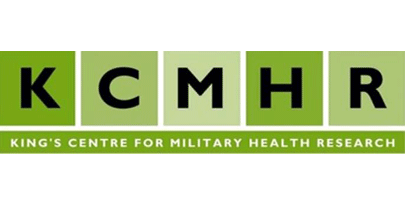Veterans with enduring psychological wounds: new findings
In May 1966, a former infantry sergeant, who had served with distinction during the Second World War, broke down under the stress of running a busy dairy farm. Not able to work and increasingly socially isolated, he applied for a war pension. As a soldier, he had coped with a succession of traumatic exposures: evacuation from the beaches of Dunkirk, torpedoed on the M.V. Accra in the Atlantic and service behind the lines with the Chindits in the jungles of Burma.
On leaving the army, he appeared well but became increasingly anxious, fatigued and lost self-confidence, relying on his neighbours to help with the farm. His changed behaviour puzzled his GP, who wrote, “I cannot relate this to any one of his wartime illnesses, yet it is difficult to deny that the sum of these… might have adversely affected his future health”. In an era before the recognition of post-traumatic stress disorder, the cumulative impact of stressors on a veteran’s mental health was not fully appreciated.
This is one case history from a sample of 500 UK veterans of the Second World War gathered for a study designed to explore the long-term nature of post-traumatic illness. All were selected because they have a war pension for a psychological illness. Because their case notes include regular assessments by medical panels, any changes to their mental health can be monitored over thirty-five years. Comments made by veterans themselves were also recorded and these offer us an insight into how they felt and assessed their own wellbeing.
The three-year study enabled us to explore patterns of symptoms and beliefs about ill-health across an extended period. Although five of the most common symptoms reported by veterans fall within the criteria for PTSD (anxiety, depression, irritability, sleep problems and avoidance of social contact), others (headache, tremor, difficulty undertaking tasks, dyspepsia, stomach pain, muscle pain and shortness of breath) were bodily in character. Although they are not included in the definition of PTSD, functional somatic symptoms are often disabling, chronic or intermittently relapsing and associated with a decreased quality of life. Further, similar patterns of ill-health have been found other groups exposed to trauma, such as refugees and civilians in conflict zones.
A recent review of service personnel and veterans with PTSD found that cognitive processing therapy (CPT) and prolonged exposure therapy achieved a meaningful symptom reduction. However, 60% to 72% continued to meet the criteria for PTSD after treatment. Our new research may provide clues as to why treatments, which have proved effective in civilians, work less well for veterans. It may be that individuals who have experienced severe or prolonged trauma also suffer from a range of bodily symptoms, sometimes termed chronic multi-symptom illness.
The pain or restrictions to their lifestyle that the person experiences may inhibit a recovery process or serve to sustain post-traumatic illness. Time is often evoked as a great healer, and indeed just over 50% of civilian PTSD is resolved within six months, yet for some veterans this is not the case and there remains a need to improve existing interventions or develop new ones.
We've published more articles on this topic:
